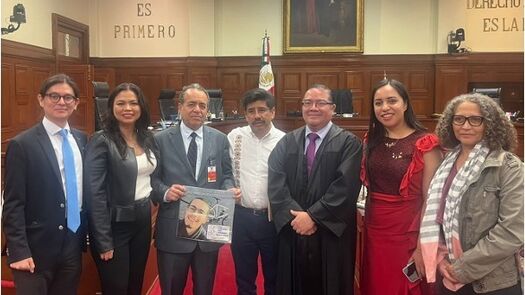December 19, 2025

On October 6, 2025, the Mexican Supreme Court upheld the constitutionality of the Law on Mobility and Road Safety of the State of Puebla. Road safety has long been a pressing public health issue in Mexico, where more than 16,000 people die every year on the roads, affecting mostly pedestrians, cyclists, and motorcyclists. In the state of Puebla, two people lose their lives every day in road incidents.
Key Points of the Constitutional Challenge and Defense
Mexico is the first country to recognize a constitutional right to mobility. Pursuant to this constitutional mandate, the national Congress enacted the General Law on Mobility and Road Safety (GLMRS) in 2022. Puebla, following a public participation process, enacted its harmonizing Mobility and Road Safety Law (Law) in 2023.
In January 2024, Puebla’s Human Rights Commission filed a constitutional challenge to the Law. The challenge claimed that provisions requiring drivers to obtain civil liability insurance to cover damage resulting from road crashes and sanctions including the suspension or cancellation of a driver’s license for drink driving or failing to secure insurance are unconstitutional because they infringe upon the freedom of travel and legal certainty.
Civil Society Backs Puebla’s Road Safety Law Through an Amicus Curiae Brief
Coordinated by Proyecto Céntrico, S.C., several local individuals and civil society organizations, including those representing victims of road incidents, such as Víctimas de Violencia Vial, A.C. and Manu Vive A.C., jointly filed an amicus curiae or friend of the court brief in support of the Law. The Global Health Advocacy Incubator (GHAI) contributed to this brief by providing legal support and arguments grounded in national and international law. The amicus emphasized the scope of the rights to mobility and health, underscoring that the right to mobility includes conditions of road safety, accessibility, efficiency, sustainability, quality, inclusion, and equality, and that safe mobility is a human right that must not be conditioned on the use of a private automobile. It further noted that the sanctions established under the law function as mechanisms essential to achieve road safety.
The amicus argued that the right to travel was not unduly restricted by the challenged provisions, because individuals remained free to move within the state and throughout the country. The requirement to hold civil liability insurance and the sanctions for unsafe driving apply only to a specific mode of transportation, motorized vehicles, and are the least restrictive methods to ensure that the greatest number of people can exercise the right to mobility safely.
In addition to the amicus, Céntrico held meetings with the technical staff of the various ministers’ chambers, following the formation of the new Supreme Court, to present these arguments before the draft ruling was discussed.
The Supreme Court’s Decision
The landmark Court decision largely aligned with the amicus brief’s arguments, reaffirming that it is individuals, not vehicles, who hold the right to free movement and transit.
The Court agreed that maintaining civil liability insurance could be compelled and that the rights at stake warranted the imposition of significant sanctions. It held that the suspension of a driver’s license for driving under the influence of alcohol is an effective measure that protects people’s rights and public safety and reflects the seriousness of conduct. The Court parted with the amicus arguments only on the sanction of cancellation of a driver’s license for up to ten years for failure to carry civil liability insurance, which it found to be disproportionate and that the lesser penalties provided for were sufficient.
Relevance of Mexico’s Supreme Court Decision
This case sets a national precedent that strengthens the implementation of the GLMRS and encourages additional states to pass robust harmonizing laws. The Coalition will continue advocating for policies that prioritize life, justice, and protection for road victims, and will engage with Congress and the public to ensure this ruling has lasting impact.
Note: This blog post was drafted based on the draft judgments available on the Mexican Supreme Court's website and for informational purposes only. As of the date of posting this blog post on GHAI's website, the final judgment had not been uploaded to the website and will likely be issued mid-November.



